I had the opportunity to join my friend Caleb Wojcik on his podcast and talk about the making of my film UNTETHERED.
Here are some links we talked about.
You can also check the behind the scenes of my end of the podcast.
Adventure Filmmaking from Levi Allen

I had the opportunity to join my friend Caleb Wojcik on his podcast and talk about the making of my film UNTETHERED.
Here are some links we talked about.
You can also check the behind the scenes of my end of the podcast.
This film is an epic ride from beginning to the end. Offering an inspiring look into a group that pursues the unthinkable.
JOIN THE DISCUSSION ON VIMEO.COM
FOLLOW ME ON INSTAGRAM
I am producing a series of tutorials videos based around this film that I will be giving away for free over the next coming months. If you have any questions you would love answered please sign up bellow and email me your questions directly. Here are some of the tutorials I am working on.
The films director Levi Allen couldn't be more stoked about the project
This is my debut film that I made with zero funding while living out of a sprinter van. It would mean the world to me if you could take a moment to share it with your friends! Here's an example:
"Just finished watching Untethered, you definitely need to check it out http://UntetheredFilm.ca"
There has never been a better time to start making videos. We live in a time where there is an overwhelming availability of capable video making tools. Cameras and computers that people decades ago only dreamed of. As a young filmmaker I myself am a product of other people being open and sharing their process and their experience. I want to give back to you by doing the same myself. This notion of trade secrets doesn't exist in my world. The best way to keep up with the content I am making around the film is through instagram, you can follow my weekly vlog or you can join my email list bellow. Let me know what you thought of the film! It would be so rad to hear from you.
One of my favourite parts of movies is getting to watch the behind the scenes bonus features. I a captivated by all that happens in the background to bring these massive films to life. Now that Untethered is released, things are really just getting started! Every Thursday I send out a newsletter packed with value. I am currently working on an entire series of tutorials and behind the scenes videos just for you! Now is the best time to join and I will give you a free software tools guide as a gift. What are you waiting for? Join and send me an email, I would love to hear from you.

"I had lots of people going out of their way to tell me how beautiful it was, let alone how well it encapsulated the whole record.” - Teen Daze
In this article I am going to share the details behind a project I worked on recently with Jamison from Teen Daze. I am going to open up the details of our creative process, how we pulled off a beautiful video on a small budget, and more importantly how it's not the specific tools you use, it's how you use them.
A Still from the video. Shot on my iPhone
Jamison was in the process of releasing his latest album Morning World when he contacted me about what it would take to make an album trailer. We had talked previously about collaborating on something, and it felt great to find something that we might be able to pull off.
We opened up the discussion initially talking about the goals and the feel of what he was hoping the album trailer could encompass. In this scenario Jamison had a fixed budget to work with from the label and that was what we had to work with. It wasn't a big enough project to go out and shoot a tone of new content for, so I started to think creatively of how I could use some material I had already been shooting.

For the entire month before Jamison reached out, I had been shooting a timelapse everyday with my iPhone. As I went through life I would just set it up and capture these quick and beautiful shots. When we were brainstorming a concept for the piece it dawned on me that I could utilize all of the timelapses I had already been working hard to shoot.
Shooting it on an iPhone wasn't supposed to be a gimmick
We genuinely believe in this case that the footage I had shot with my phone was the best to use with the constraints we were working with.
In my initial brainstorming with Jamison we uncovered that he wanted the piece to have an element of landscape transformations. This made timelapse a fantastic medium to use in order to reach these goals. Commissioning the shooting of an entire timelapse piece requires a significant investment due to the amount of time involved with such a piece. In this situation I considered all the shooting time that went into the timelapses as pro-bono, and the budget of the project was used to cover post production.
My goal was to have this piece feel like a natural journey. An experience that the viewer can go on paired with the beautiful music. This natural flow doesn't happen on accident. In this instance the ordering and timing of everything actually went through many revisions until it flowed just right.
I refined the piece over 16 different iterations until it was perfect

The key to getting the best out of the iPhones camera is actually to avoid the native time-lapse function altogether. It is crucial to use an app that takes a sequence of pictures at the highest quality the camera is capable. The app I used was called Lapse-It Pro. I would shoot sequences of about 300 images in the app and then transfer them over to my computer to be processed. It is important for whatever app you use, to make sure that for each sequence you lock the exposure for that shot. This way you don't get any flickering changes in the shot throughout.
Once the folders of images were on my computer, I would import them into premiere selected as an image sequence. I edited this piece for 1080p output so a lot of the shots were able to be downscaled allowing for small pans and zooms in post.
At the end of the day, non of this technical stuff maters if we did not reach the original goals of the project. I waited several months after the release of this video before writing this article. I wanted to have real world results and touch back with Jamison after the release to see if the video was a success. Here are some of the questions that I asked him.
"Definitely. I had lots of people going out of their way to tell me how beautiful it was, let alone how well it encapsulated the whole record/project."
"Levi has been a friend of mine for a long time, and though that can sometimes get in the way of a good working relationship, this project ran incredibly smoothly. In only a few short conversations, we were able to get on the same page about exactly what we both wanted the trailer to look like."
"I'm definitely aware of my limitations when it comes to visual arts, and so I'm quick to hand the control over to a more experienced professional. I try to make sure I can vocalize exactly what it is I'm looking for, while still understanding that the collaborator have their own vision as well. Striking a balance between those two is pretty important."

It is vital to the health and quality of the final video for there to be a creative process that is outlined from the start. There are lots of different steps and stages along the way, it's important to keep the project moving along and the working relationship healthy, especially between friends. As the professional the final results are my responsibility. This doesn't mean that I just do my own thing and be stubborn, it means that I create a space of listening to the clients goals in the beginning. Once I have listened thoroughly and have gained an understanding, that's when a plan of attack is implemented.
At the end of the day I am not paid based off the tools I use. I am paid because I am able to professionally execute on a creative process.
There are people out there who believe that videos should be cheap and easy because the tools are so accessible.
Yes, I am so passionate that the tools are available more than ever before. But an accessible tool does not make up for a poor creative process. One thing I am really passionate about as a creative professional is having a proven process to creating story telling content of the highest possible impact. I don't settle for lower quality, I don't settle for mediocre, I only take on projects that I know have the potential to be my next best work.
If you are just starting out, be encouraged. You most likely have a tool in your pocket that you can make something beautiful out of. The main way to get better and create more professional work, is to do just that, create. Create create create. Practice. Trial and error. These are the most essential steps, not which camera you have in you back pack.

I wrote another article here on my timelapse film Beautiful British Columbia. I shot this film using only a 500$ dslr. I strongly suggest checking out out that post as well.
Written by: Levi Allen VanderKwaak

Spencer Seabrooke is a master of the arial balancing art form known as Highlining. He is one of the few highliners in the world that is truly pushing the sports boundaries into uncrossed territory.
Untethered follows Seabrooke as he passionatly grows a community of Highliners in British Columbia. The film offers a rare glimpse into the lives of people who do what most couldnt even imagine.
Every weekend people from all walks of life head together into the mountains, with one unifying goal. They come together to test both their mental and physical limits by walking slacklines stretched between massive gullies.
This progressive documentary gives a rare glimpse into the mind and life of someone practicing a craft with the highest stakes imaginable.
“They are tethered in right?”
That’s the common question Highliners receive from bystanders who happen upon their mountain top playgrounds. The answer is Yes… Most of the time.
There is one highliner in particular who has a knack for walking these slacklines without a tether. His back up being his arms and legs. That man is Spencer. He has progressed his abilities to a level few can even begin to wrap their minds around. Spencer has pushed himself to have complete mind and body control in order to conquer the discipline of free-solo highlinging.
This film follows Spencer and his closest friends on the journey of a life time. This summer Spencer became the first man in almost four years to extend the length of the World Record Free-Solo highline walk.
Yet It’s about so much more than breaking a record. It’s about pushing the boundaries of human experience. It’s about testing the limits your limits. It’s about forming a community centred around a passion for exploration. Untethered Gives You a Ride of a LifetimeThis film is an unparalleled journey into the world of highlining. A story that will leave you captivated till the very end and have you still hungry for more. Untethered is sure to inspire the progression of personal limits and motivating viewers to reach higher for what life has to offer.
This film will be launched in December on Vimeo entirely for free. I have toiled over the crafting of this project and I cannot wait to share the experience with you. You can join the Leftcoast Collective to receive weekly behind the scenes value on the creation of this project. I send out an email every Thursday to those in the collective. What are you waiting for?

We had set off sailing up the beautiful Knight Inlet on the northern end of our trip. We were making our way up the inner coast of Vancouver Island and had already seen some amazing sites. However I got really excited when I heard we might make our way up to this beautiful place. To me Knight Inlet has remained a place of magical memories. A place that seems straight out of an adventure book.
It was in this exact spot two years ago that I had seen my first and only Grizzly bear. That memory has stood above most as something I won't be forgetting anytime soon. Being in the presence of a powerful creature in it's natural place of life, is a crazy experience.
On this trip however our first scouting mission was completely silent. Nothing. We heard word that ten sub adult grizzly bears had been seen that day alone, and yet in our two hours of paddling around we saw nothing.

I was overjoyed with excitement. After a night of songs on the boat we settled in for the night. The next morning there was a buzz aboard the ship as we got news there was a mom and her cub near by

We silently moved the zodiac in as gently as we could. Everyone was almost holding there breath as we made it towards the shore. Our view was obstructed from these large posts in the water by the shore. These pillars that used to hold up a dock of some sort. Someone said they saw something move and we all strained our sleepy eyes a little more. Sure enough as we got in just a little closer there in plain site was a mother and her cub prowling the shore line. I thought to myself, this is why I love sailing, this is why I love adventure, it's all about moments like this.
What excuses do you make when you put of creating projects you are passionate about? I know that I have tended to make a lot of excuses over the years. I don't have enough time, I don't have a nice enough camera, or maybe the content wont be good enough. Avoiding making things your passionate about seems all too convenient these days. It seems that a lot of people in the video industry have become so accustomed to saying,
"I can't afford to work on videos I want to. You know, gotta make money from those corporate clients, it's boring but it pays the bills."
I don't think you can afford to not focus on your passions. I have caught myself thinking in a similar fashion and I am convinced it doesn't have to be this way. We can still be making films about the things that we love, even if we claim to not have time to.
If you are not making time for projects your are passionate about now, I don't think you will ever make time them. It all starts with today.
On this trip it wasn't even my responsibility to make a video. I was volunteering as a Watch Leader and helping run the sail training program aboard the vessel. Video was definitely a back seat priority. Yet even though it was back seat to my actual responsibilities I still took it seriously enough to make something I am proud of from the trip.
This was all made possible from being okay with less than perfect. Is this the quality of videos I want to be making? Not necessarily, for me I know I am capable of creating films of a much higher caliber, but I don't think that means I should pass up on the opportunity to make something when the story is there. Not everything can be a 100% film. One thing I am noticing is that people pay attention to consistency far more than they pay attention to announcements.
I don;t want to be the go to adventure film guy because I want to be better than others. I definitely don't want to in order to win some type of social media race of stats and numbers. This is my goal because I want to be making films like this all the time. It's that simple.
I come alive when I make films about adventure.
I want to say no to making anything less than what I am passionate about. It is so hard to do this, but it means when I am selective in picking my projects, it creates the potential for each project to be the best thing I have created. That is the type of work I want to be making. Capturing and sharing stories that make me come alive.
Currently I am doing a lot of freelance editing. I am doing this so I can pay my bills and not be forced to take on clients or projects that are not a good fit for my company. I am growing Leftcoast Media House to be a specialized production house that tells adventure stories with excellence in the Vancouver and greater British Columbia area. I believe that you can make the tough choices to enable yourself in doing this as well. You can be making what you love if you are willing to sacrifice and fight for it.
Written by: Levi Allen VanderKwaak


https://www.youtube.com/watch?v=F0DCBebgdUc
Stock UTV Rzrs bought off the lot are definitely not equipped for this level of performance.
Al’s workmanship creates beautiful pieces of art, the chassis he builds for these machines are incredible.


https://www.youtube.com/watch?v=B_ab5NZDbKg I am so excited that I get to share with you some projects that have been in the works across the past two months.
What do you get when you combine a helicopter mounted with GoPros, an awesome pilot, hard to access alpine mountains, impeccable black ice, and two professional skaters? Actually though, what do you get? I am asking because I seriously can't figure out how to describe this video.
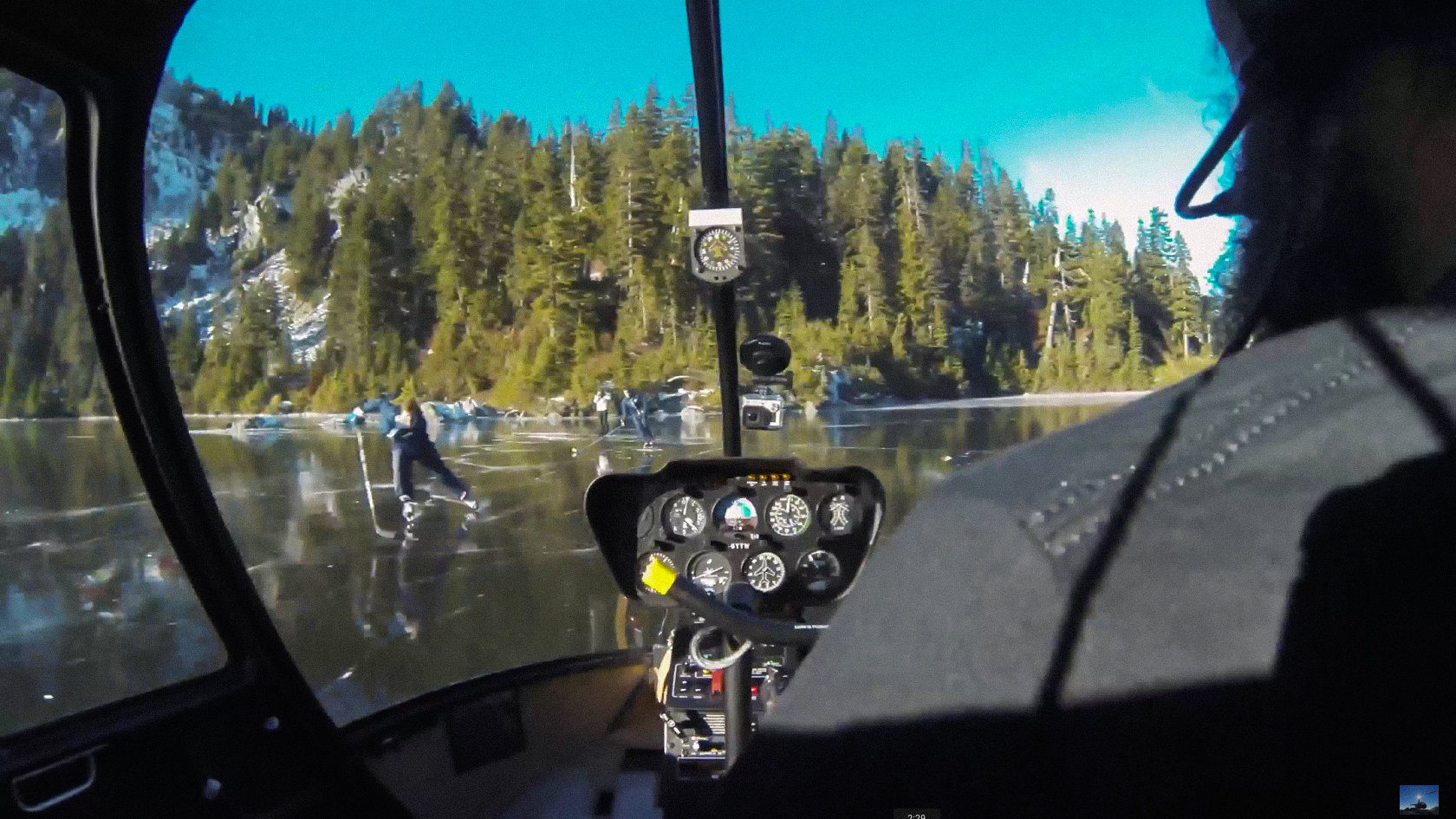
I finally can share about a project that I have been so excited to talk about with you guys. For the past couple months I have been working with an amazing helicopter pilot and all around a genuine Canadian to the core, Brad Friesen. I've come on as the lead editor and one of the cinematographers for his new YouTube channel that just officially launched.
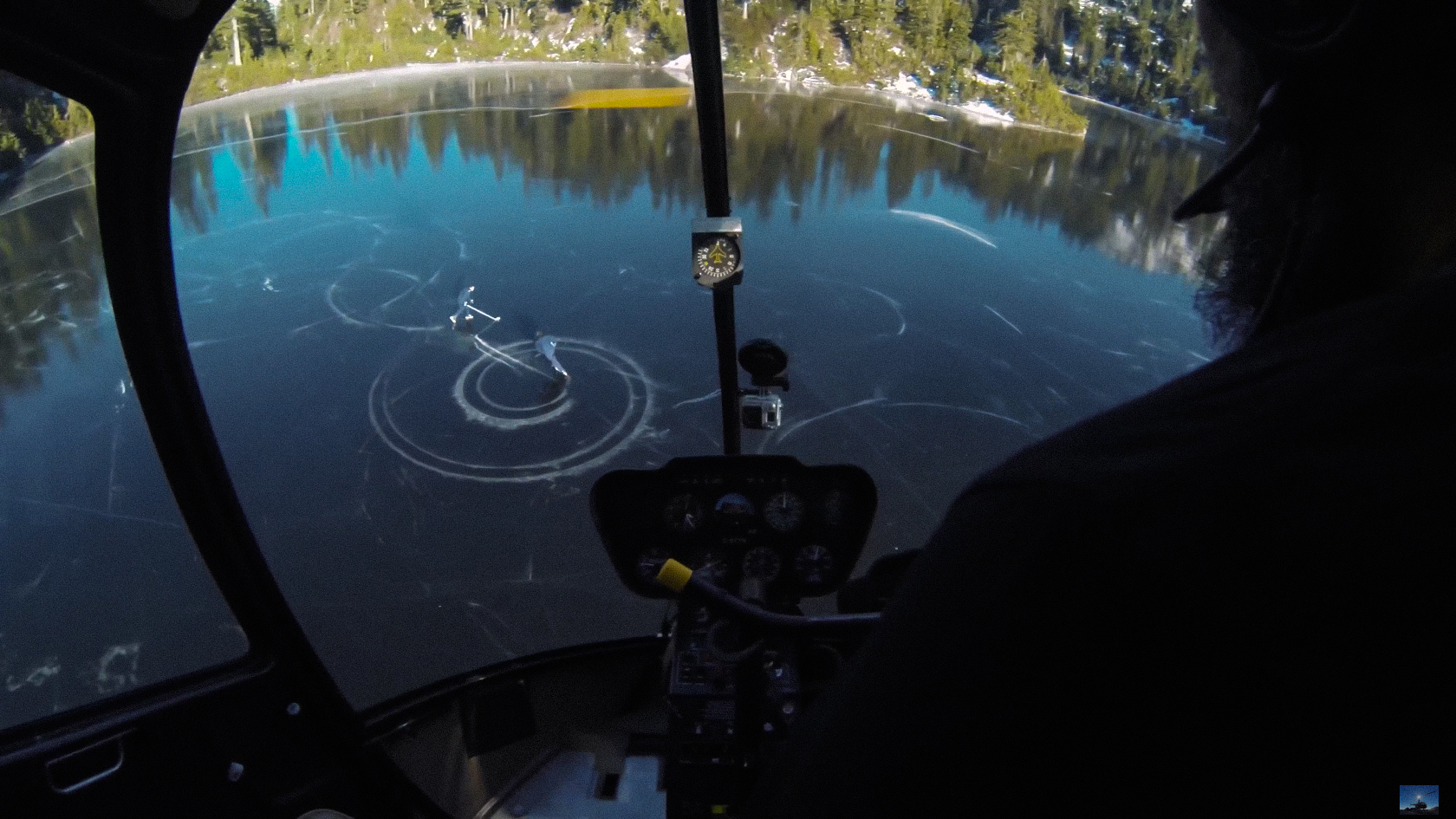
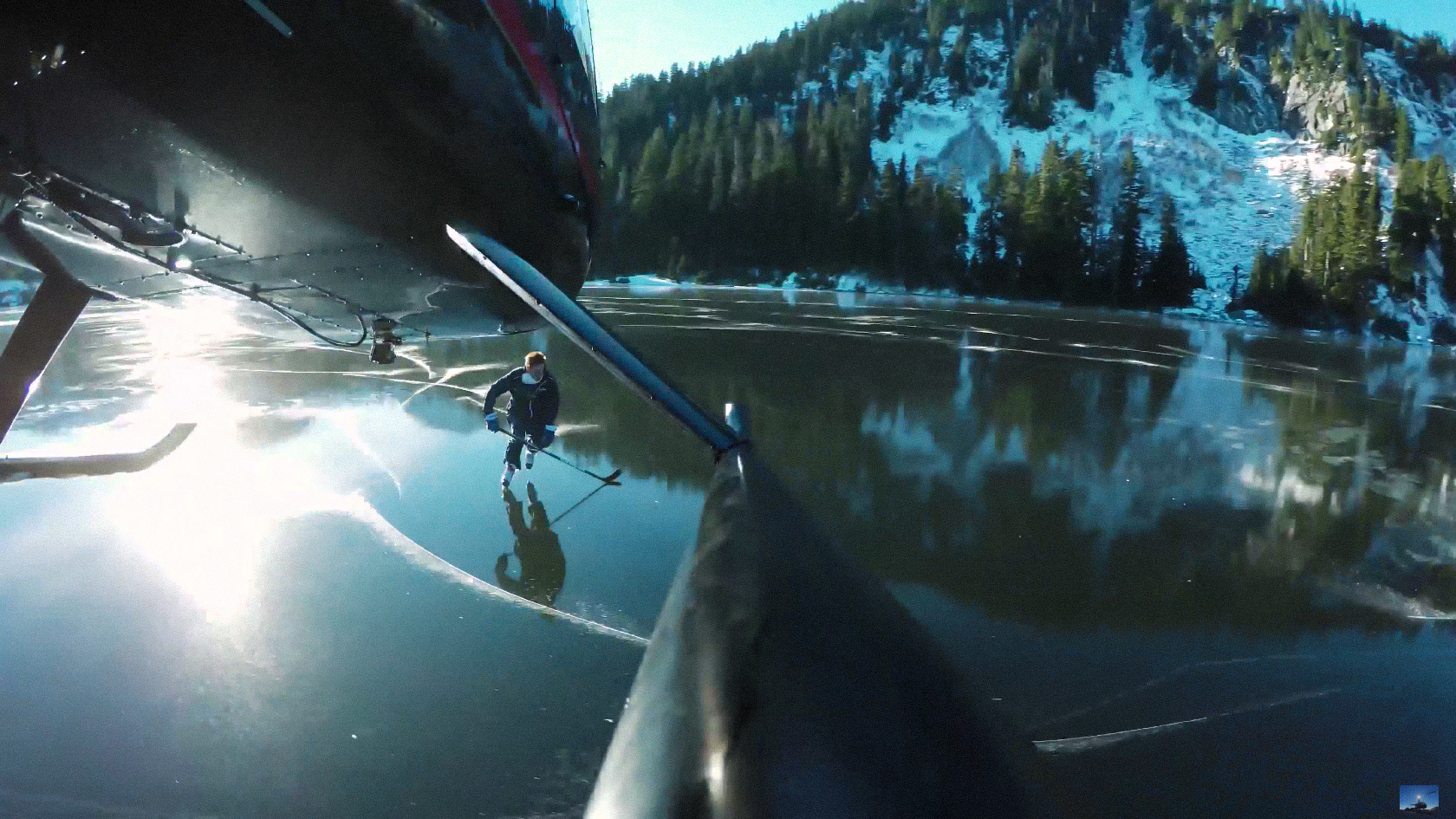
We have some amazing episodes in the works that I am really stoked for. I want to write articles that answer your specific questions. What do you want to know about making a video like this. So seriously, what do you want to know? If you are part of the Leftcoast Collective, send me an email directly! You could also head over to my post about it on facebook and ask your questions there.

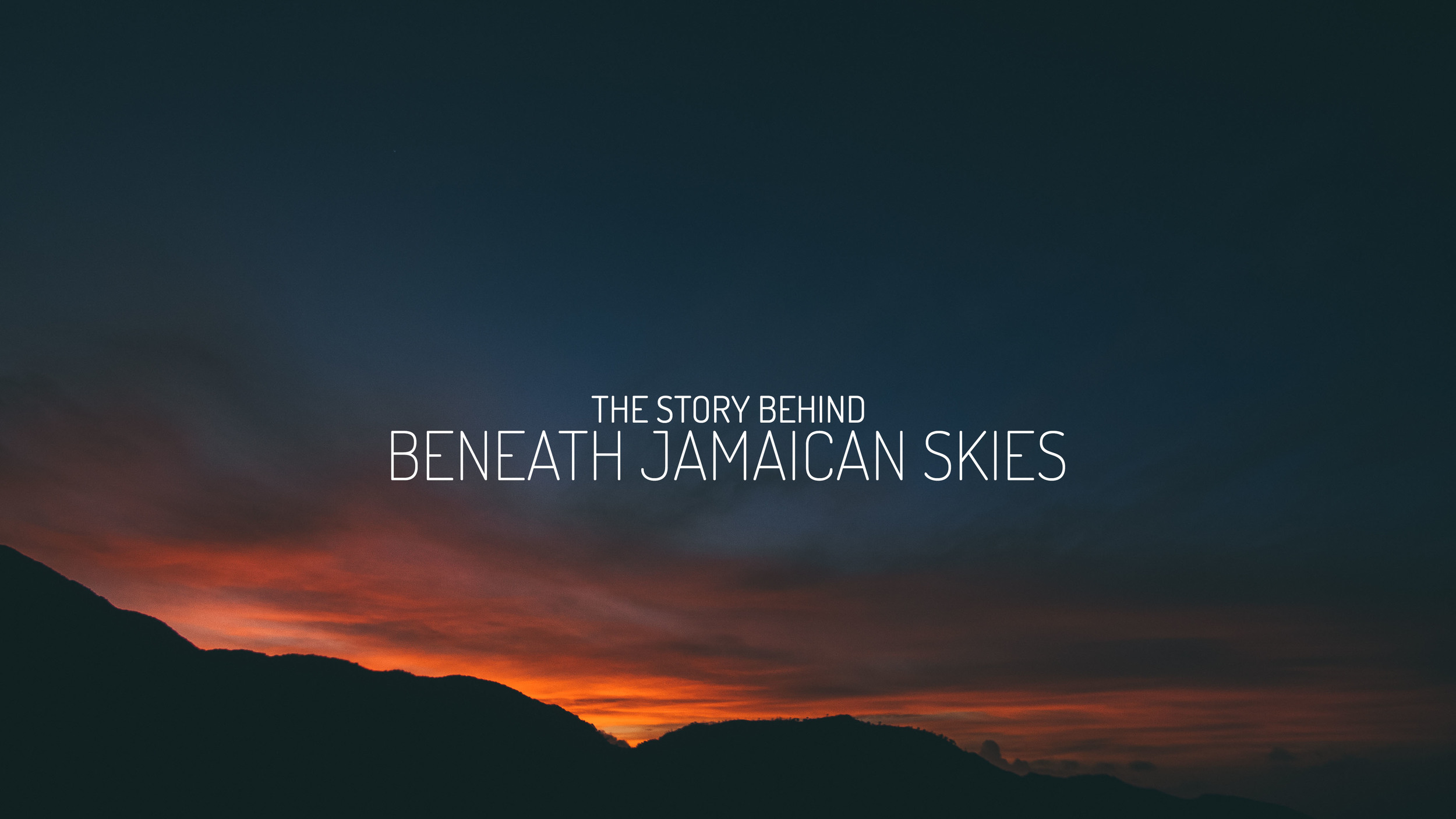
I felt as though I was watching a master painter work on his next canvas before me. This nagging feeling came that I shouldn't be here, it told me I was intruding on his beautiful work and he wouldn't want me to watch and enjoy. Yet a stronger and;gentler voice broke through and knowingly beckoned me to experience the present. He seemed to be saying, look here, enjoy what I making.

I like to call these experiences forever memories. Those precious moments of our human experience that you know won't ever be forgotten. Moments in time where every sensor in your body is taking in everything it can. In times like this it truly does feel like you are writing a good story with your life. You can feel so insignificant in a vast expanse and yet still feel a unique and overwhelming sense of value. It is as if something, someone, is calling you to take part in something bigger than yourself. It's this deep-rooted feeling you have a part to play.
This is why I love timelapsing. It has brought me to places and given me experiences that I hope to never forget. Once you get the timelapsing bug it begins to change the way you see and experience everyday life. You start looking for patterns and motion in the landscapes around you. It gives you an entirely new perspective to the moving world.
https://instagram.com/p/PAzCTOSLT-/
FILMMAKING HAS DRAWN ME TO SEE THE WORLD FOR ALL IT HAS TO OFFER, IT HAS PUSHED ME TO PURSUE EXPERIENCES I WOULDN'T HAVE NORMALLY PURSUED.
If that's sitting on a mountain through the night watching the stars move by, or chasing the last fading rays of a beautiful sunset. Timelapsing has added a dimension to my life of such rich depth and beauty. The moment I was describing previously was an iconic moment for me and my journey as an aspiring filmmaker. It is one of the few moments in my life where I have felt spoken to so deeply.
https://instagram.com/p/Or7qx3SLVs/
This project came about through an opportunity I had to travel to Jamaica with some friends. I had just graduated from High School and I was really keen to make some projects with opportunities to practice and grow. I had previously shot my Beautiful British Columbia Film and I wanted to implement some of the things I had learned from this project. At this point I had gotten the timelapsing bug and literally timelapsed almost anything that would move.
I shot almost every sequence in this film in RAW stills so I could push the settings in post and do exposure ramping. I shot a lot of the sunset and sunrise timelapses using the Holy Grail method. Having these sequences in .CR2 was certainly very helpful. I also shot a ton of glidcam footage on this trip. There are a lot of shots that made it into the film, but literally about 10 times that amount that ended up getting cut.
HOW DID YOU GET SO GOOD AT GLIDECAM?
When people ask me how I got so good at operating a glidcam, I always point back to this trip. It was literally two straight weeks of constant glidcam shooting all day every single day. I would set up a timelapse and then use another canon T2i to shoot moving shots. I put in a lot of hours which helped slowly take my skills to the next level.
The gear I used to shoot this piece is actually really simple
• Modified Flycam Nano ( I extended the middle column so it could hold more weight • Canon t2i (still an excellent very useable camera) • Tamron 17-50mm f2.8 VC (awesome run and gun lens) (one of my favourite lenses) • Rokinon 35mm f1.4 lens (one of my favourite lenses) • Borrowed sigma 10–20mm (I wouldn't recommend purchasing this) • Manfrotto Monopod (MVM500A) (absolute favourite tool for run and gun shooting)
For my intervalometer I used Magic Lantern.
I edited this film on my mid 2012 Mac Book Pro, it only has 8gb of memory, but the i7 intel chip handles things fairly well and is still my main editing machine.
https://instagram.com/p/O7kkX5yLQU/
I learned a lot on this project as you would expect when you spend so much time shooting and editing. I now know that when I create pieces like this I really need to be fighting to find a story that helps tie the whole piece together. This film for me was an amazing accomplishment of a visual display, yet there wasn't a driving story. There isn't a component that grabs someones attention and drives them to watch the entire thing. The only reason the average viewer would watch it all the way through, is if I managed to enthrall and entice them with the visuals. You need more of a grab than just something pretty. With this in mind I would have tried to capture the culture and the people. I would have tried to integrate a human element that viewers could relate to.
Another thing I learned on this project is that next time I am not going to shoot near as many GoPro timelapses. I have hundreds of gigs of .jpg timelapses all GoPro shot. None of them made the cut into the film.
Thanks so much for reading about one of my films. It is my goal to create more in-depth posts on my future projects, both in storytelling and in the technical production side. You can send me any questions or feedback through email directly by joining the Leftcoast Collective.

I have made this guide available to all current and future subscribers of the Leftcoast Collective. If you would like to receive a copy of it directly join the Leftcoast Collective bellow. I will continue to send free great content every Thursday and you can unsubscribe at any time. [yks-mailchimp-list id="e34efe9754" submit_text="SEND ME THE FREE EBOOK!"]
Written by: Levi Allen VanderKwaak
https://vimeo.com/127073088 This week I got asked a question from Alyssa, "Levi, I am just starting out with filmmaking and I wanted to learn how to conduct interviews, could you share some of your tips?"
I just created a film that was heavily driven by interviews (as seen above). I thought it would be an excellent opportunity use this piece as a case study of sorts as I talk about my interview process. My goal in this post is to teach you how to go about creating better interviews for your next film! First I will share my approach to interviews, and then share some behind the scenes info on this Kaleo film.
This post is going to help you learn how to capture better real life stories. I am going to push into an important component of how I approach storytelling, getting great interviews with ordinary people.
The filmmaking style I am developing definitely relies heavily on using interviews to convey the story. In most cases I find that I am interviewing people who have sometimes never been on camera before in their entire life. But I have learned a few tricks to make the whole process a lot more natural and comfortable for everyone involved.
Once I have captured the interview I eventually end up cutting out the main best bits of their talking and using this audio drive a visual story. I don't include the audio of my questions being asked, I only use the visual and audio of the subject.
The nature of the interviews I normally conduct, do not allow for a whole lot of pre-production. If you are interviewing a public figure or an artist, you need to do your homework and study up on the subject. Yet most of the time you might be interviewing someone who has nothing about them on the internet. In this case there is not much that you will have prepared going into the interview. What I normally do for every interview anyhow, is sit down on my own before hand with a piece of paper and sketch down some thoughts or ideas I would like to cover. I don't use this as a formula I have to follow, rather just as an idea sheet for those moments in the interview where I feel stuck and don't know where to go. I find this small bit of prep helps a lot and makes me feel a lot less panicked about what I need to cover.
Do you know much about subject you are going to be talking about with the person? If not you should definitely spend some time learning about the subject, are you going to talk about this persons massive Star Wars collection? Well then, you should probably know a thing or two ahead of time about Star Wars.
Your goal as the interviewer is to get your subject into the most comfortable and natural state as possible. You want to get them talking as if they were in a conversation with an age-old friend. This is hard to do in a location with lots of distractions or unwanted interruptions. I ask them to sit on the edge of the chair so they their body position naturally seems more interested in what they are talking about. This way they don't slouch their shoulders and lean back in the chair as well.
This could be an entire post in and of itself, but I will give a few tips that I use. When setting up your angle, try to have the camera at eye level with the subject or a little bit above. My goal with angles and lens choice, is to make it feel as if the viewer is sitting there with the subject. Use good composition and have the subject look slightly to either side of the camera. Having them look to the long side of the frame (as shown bellow) helps create a far more natural feel. You can get stylistic here if you are trying to convey a certain feeling, but this is usually my starting place with single camera interviews.
The biggest part of what will drive this interview is good clear audio. I use a wired lav connected to a Zoom H1 to record my audio. It is strongly recommended to have two sources of audio such as a shotgun mic and Lav, but I currently have not invested in this. When setting audio levels I usually tend to get a conversation going with the subject trying to make them feel comfortable. I don't even let them know I am setting levels, I just try get them to talk about themselves or where they are from. While they are talking try set your levels and leave a little room so if they get excited it won't peak the audio
In order to conduct a great interview, you need to be a well-practiced conversationalist. This is by far the most important part of getting consistent results from a wide variety of people. Your goal is to get them comfortable and forget entirely that they are on camera. Most people are super nervous about the whole process and the quicker you can get them comfortable, the quicker you are going to start getting the audio bits you actually want to use. When first sitting down I tend to explain how the interview process will go, "It's going to be just like a conversation, don't worry about the camera, you can talk directly to me." I sometimes explain as well that I would like to have them include the question in their answer. For example, Q: "How do you like being interviewed?" A: "I really enjoy being interviewed."
Instead of
Q: "How do you like being interviewed?" A: "I really enjoy it."
Once the interview starts and the technical components are rolling, your full-time job is being a fantastic listener. You need to make them feel as though you care immensely about what they are saying. You need to ask great questions that build off what they just said. You should ask questions that make them think, "Man i've never thought about that before."
The moment you look down at your paper for your next question, you have pretty much lost them.
This is so challenging, but you need to keep eye contact with them and avoid being distracted yourself. You can look at your questions from time-to-time, but if the interviewer starts to feel like you are following a script, you will get results as if you were following a script; forced and unnatural.
This step is incredibly important as well. Important enough that I decided to make an entire blog post about it next week. If you are not apart of the Leftcoast Collective already I strongly recommend getting on board so you can find out when my latest posts are released, you also get a free ebook which is pretty cool.
The Purpose of the film: This is a film that I created to document and share the story of an eight month leadership program on Vancouver island. This piece was driven by interviews that I conducted with ordinary people who had never been in front of a camera before. The format is a little long as it was not necessarily made to be viewed online.
The Filming Process: I gathered my footage throughout the year whenever I had the chance. My primary job was as a leader on the trips, so filming definitely was not a priority. For this reason my kit was usually really light. I rocked a top loading Tamrac bag so I could pull out a camera at any time and film. Using the Rode Video Mic Pro for Audio I shot primarily handheld or with my homemade stabilizer using mostly the Tokina 11-16 or my Rokinon 35mm f1.4
The interview shots were all done with my sigma 50mm 1.4
The Editing: I edited this piece in the few days coming up before their graduation. From the start of the editing to the time it was screened, I had just under a total of 36 hours. I cut all the interview selects, and then started to piece together a storyline. Then I went through and cut all my favourite BRoll and started adding that in over top.
The Grading: I only invested about an hour into grading as that was the only time I had. I did a basic color grade through lightroom using VSCO. I am not to happy with a few of the shots, but most of it turned out just fine.
All in all the project was heaps of fun. I always wish I had more time to edit, but It was literally right down to the deadline on this one. I literal just finished encoding the project 5 minutes before the grad ceremony started.
Woah, this ended up being a bit of a wordy post. I hope you got some value from it. As always if you have any questions connect with my on social media, or join the Leftcoast Collective and send me an email directly!

I have made this guide available to all current and future subscribers of the Leftcoast Collective. If you would like to receive a copy of it directly join the Leftcoast Collective bellow. I will continue to send free great content every Thursday and you can unsubscribe at any time. [yks-mailchimp-list id="e34efe9754" submit_text="SEND ME THE FREE EBOOK!"]
Written by: Levi Allen

https://vimeo.com/124455320
I made a behind the scenes video about the making of for this project, you can find it at the bottom of this post.
I have been living in one of the most beautiful places in BC for the past three years. That’s right, i’m claiming it as an absolute gem on Vancouver island. It’s called the Cowichan Valley and it is an amazing place of rolling hills, mountain peaks and ocean views. I've been inspired by the landscape ever since first stepping foot here.
I am moving off the island in just under a month and really wanted to create a short biking film as a tribute of sorts to my home of the past three years. Not knowing many riders in the area I sent out a text or two and eventually got in in touch with two racers in the area, Trevor Thew and Nic Rodgers.
Strong camera direction and excellent framing is something I wanted to be very prevalent in this piece. Focusing on framing some really beautiful shots and having the whole edit move with a cinematic feel. I came into the project hoping to grow in my composition and also sharpen my eye for lens choice.
I wanted to chose every lens and angle for a reason, not just because it was the lens I already had on.
The choice was made to stay away from shooting everything on my homemade steadicam as I usually do in action sports sequences. Instead relying heavily on my Tripod and my Kessler Crane Pocket Dolly. I also avoided slo-mo for the entire piece, I wanted it to feel and look fast.
After some text’s back and forth we decided to try film during two mornings at the end of the week. We wanted great soft light, so we shot as early as we could in the day and ended both days when the light got too blown out.
The riders had a big say in the trails they wanted to shoot on, we tried our best not to re-shoot sections that have been heavily filmed before. When we begun the shooting the first day I definitely had to dig deep for all the hiking. Yeah yeah, embarrassing to say, but I definitely sill had my out of shape winter legs, and each step that first day was hard earned. All in all I was carrying around 50lbs of awkward gear in between shots. I definitely learned that a carbon fibre tripod is something worth investing in soon. I also decided not to cary as much gear in my backpack next time, only the stuff I knew was needed or helpful.
Why did I think I needed my chargers along?
Shooting on the first day went really well, initially being super excited with the results, I knew we would have a decent video on our hands. That’s always a good feeling to have.
Recently I purchased the 3 foot Pocket Dolly from a friend, and it really does not work very well just centre mounted on one tripod. I brought two tripods with me to keep the slider steady.
A great friend of mine Jeremy came along with me the second day helping take pictures, shooting behind the scenes video, and carrying gear where he could. It was a huge help having someone else along to assist with carrying things in between shots and I was really thankful for getting some behind the scenes footage.
Audio often gets neglected when I am in the rush of shooting outdoor pieces. This time I knew for sure that getting some stereo sound of the bikers riding by the camera was a high priority. I wanted to use the audio to help tie the edit together and bring a more immersive feel to the edit.
Using a Zoom h1 and wired directly into the camera, I ran Magic Lantern on my 60d to help monitor and adjust the audio. I used this shock mount I had bought off amazon a few years ago to try minimize the amount of sound that would enter into the mic from camera movement; it worked really really well. In the future I want to spend more time EQ’ing the audio in post, but for this piece I just boosted the gain for most of the shots and then left them as is.
The piece was cut in premiere-pro right after shooting it. It is a joy cutting the material fresh after shooting it, I find it saves a lot of time as I am really familiar with what was shot and can usually remember which takes were good, and which ones are bad. I then sat on it for a day or two.
When I came back I began to cut even more aggressively. I wanted to cut anything that wasn't well shot. Deciding not to include any shot just for coverage sake. In this second pass I got the edit down from 6 minutes to 2:30! I also spent a half hour or so 3d compositing my tree logo into one of my slider shots. I wanted a simple intro with no text. The desire was to communicate my brand, but not in an obtrusive and in your face type of way.
The next couple days when there was time I continued to fine tune the edit and focus in on the details. In this piece I added Warp Stabilizer to about 80% of the shots. Setting it at about 12–22% and let it just do micro adjustments. This really helped make my smooth slider movements even smoother. Lots of my slider shots had focus pulls during the slider moves. This worked well, but I would occasionally wiggle or bump a little, warp stabilizer helped get rid of all of this.
In this video I tried something I had never done before. After the edit was done, I imported all of my footage into Lightroom and applied a preset I had made based on one of the VSCO presets I bought. I love the look of these presets and I wanted to try it out on this piece. I made small white balance and exposure adjustments and then exported all the clips to a new folder. After I exported all the clips I re-linked the media in premiere to this new folder and now all my footage had the grade I had made in Lightroom.
Some of the other finishing touches I added was film grain, and a 1920x808 aspect ratio. I shot the piece framing for cinescope and so I felt that this aspect ratio really helped give the piece a solid feel.
All in all I was pretty stoked with how the piece turned out. It definitely has the best camera movement for any biking piece I have shot. I grew from making this piece and I am really excited for what I am going to make next! If you have any questions feel free to get in touch with me through the contact form and I would love to answer them! Join the Leftcoast Collective and gain exclusive access to all of the content I create.
https://youtu.be/FswOFko8cx4
If you want to follow more BTS content, join the Leftcoast Collective or subscribe on YouTube
You won't want to miss it, it is a packed full guide of my favourite computer tools, apps and plugins. Join the Leftcoast Collective and I will send it straight to you. I will also send free great content directly to you every Thursday, big things are coming that you don't want to miss. [yks-mailchimp-list id="e34efe9754" submit_text="SEND ME THE FREE EBOOK!"]
MENTIONS: Huge shout out and thank you to Jeremy Fehr for taking all the BTS photos. You can find his instagram here.
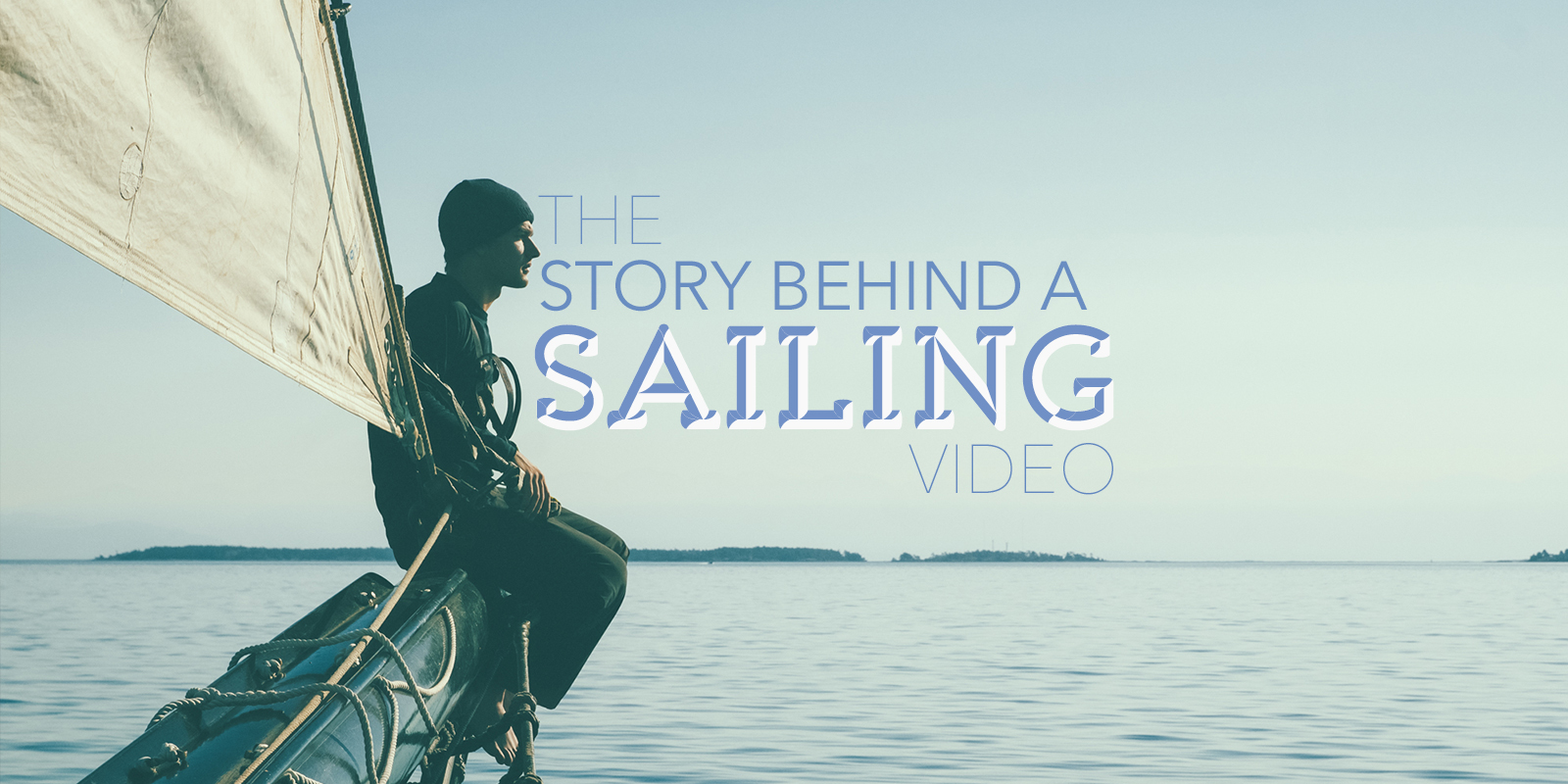
I had no plan right from the start, no agenda, simply living adventure and going from there.
The trip was this crazy opportunity to sail for 5 days with some of my closest friends aboard the Pacific Grace, a 138’ gaff rigged schooner run by a sail training organization called SALTS. My inspiration to capture our experience first came from walking down the dock towards the boat, I was walking with my buddy at the time and I knew this was one of those trips that I should start filming. I stopped on the dock while pulling out my camera and just started filming what was happening. “Where are we and what are we doing?” I asked my friend with excitement. Everything just unfolded from there.
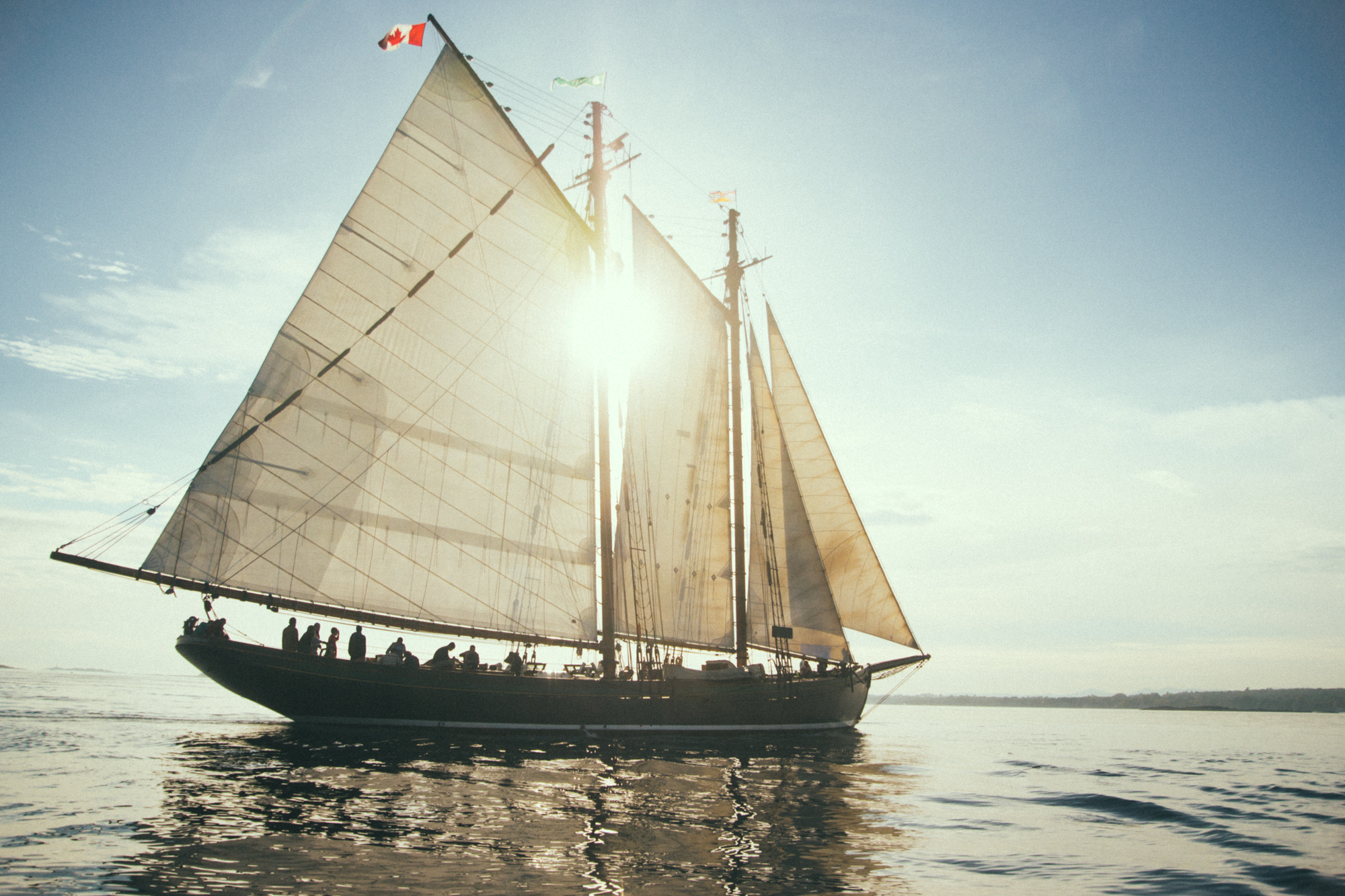
I love this film. Not because it is perfect, not because the story is fantastic, but purely because of the memories that go alone with the adventure. I am so thankful to have moments of it captured and now I can experience it again and again. In this post I wanted to share a bit of the story behind the piece and maybe shed a little more light on the project.
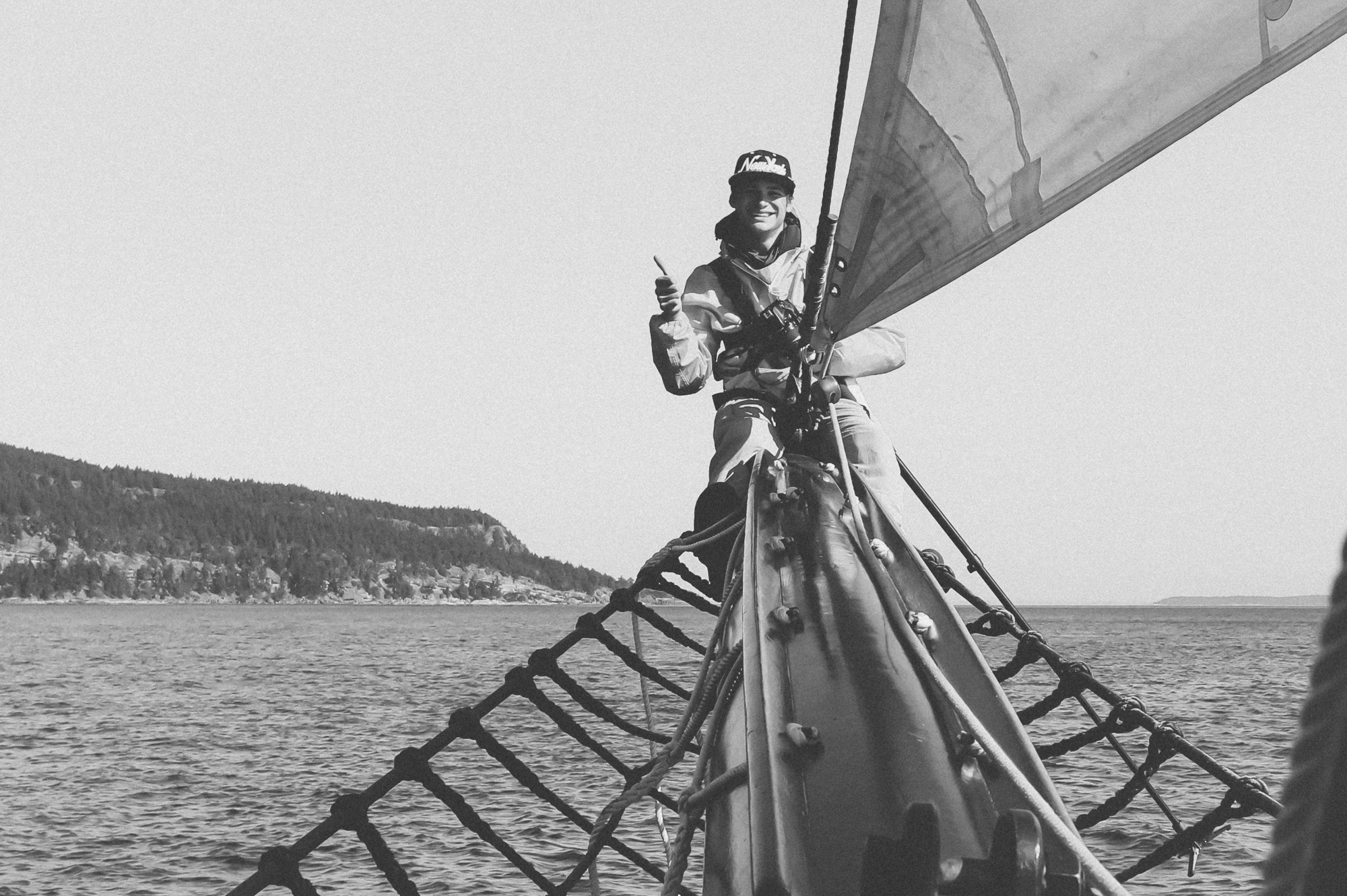
I initially thought I had a lot of limitations with this project. It was challenging get any angles showing the larger perspective of the boat as it sailed through the water. Yet even though there were challenges, like breaking one of my main lenses on the trip, I have learned to love limitations because it forces you to adapt and overcome—initially what is seemingly a disadvantage, under the right light can work out to be your greatest advantage.
As our trip progressed I loved the movement of everyone working as a team to operate this whole boat. Every person on board working in unison under the guidance of the skipper to raise and handle sails. The collision of human hands working the skillfully crafted rigging of the ship was fascinating. Every nook of the boat, every rope, every sail, every time we hauled and lowered, all a fascinating movement of hands and boat.
This is another one of my films that once I was done, I wished there was many things I had done better. This can be frustrating at times, you create something you care about, only to wish the results could have been better. However I never would have found out those things I wish I had done better if I had not attempted to make something at all. If I want to keep improving I am going to have to keep making things and that is that.
My level of production is reaching a point that I am becoming satisfied with, but I know I have a long way to go with storytelling. I want to make videos that captivate people, and I know I have a lot yet to learn.
At the beginning what I had thought most fascinating was the boat we were sailing on, yet when it came time for our trip to disembark I knew something much greater had been happening through the community aboard. The beautiful unison and harmony of a team of people working together, working for a common goal on this journey together.
Shared experience are a powerful thing and there is something priceless about memories you shared with others that you will take with you for a life time.
One of the challenges I faced was the balance between capturing and just living in the moment. Should I capture this or just experience it. There were many moments that we experienced together when no camera was rolling, and no pictures were taken. The moment came and went, and is now just for us to experience in our memories.
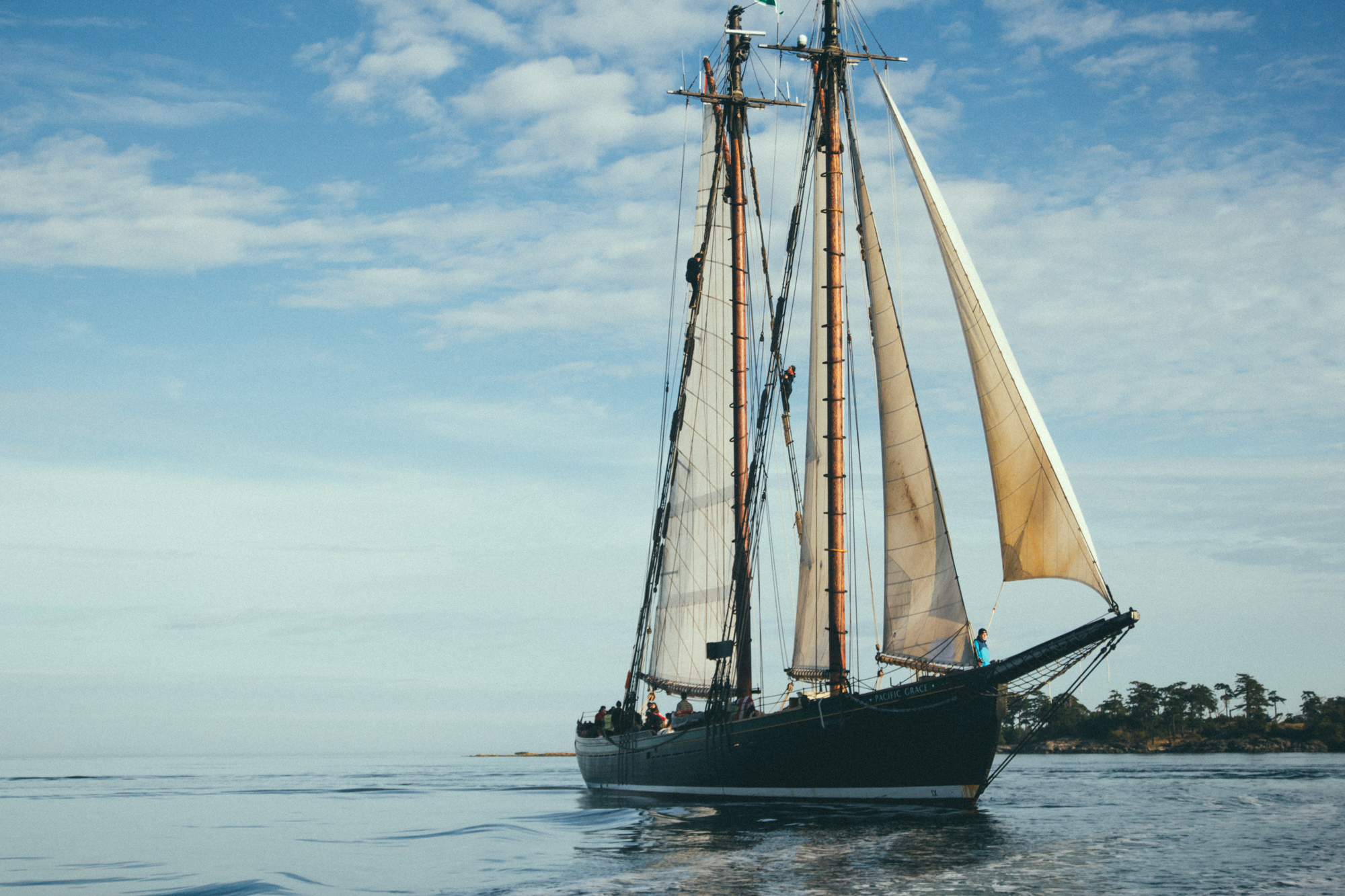
When I was finished the project I wasn’t even sure what I was going to do with it. I ended up releasing it online and sharing with some who i knew loved sailing. So many others who had fallen in love with sailing were moved by the piece and messages of poured in. Sharing of the times they went sailing, and the many days they had spent at sea with friends.
A story about a bunch of friends going sailing brought some to tears.
How is a response like this possible I wondered? I didn’t do a very good job telling an inspiring story, yet somehow it connected with people. The response to the film moved me greatly as an aspiring filmmaker. As a teenager I realized maybe there is value in sharing my voice. Drawing others into the world in the way that I see it, sharing stories that I love and desire to capture. This film and especially the response to it, has impacted the rest of my life as a creative, as someone who makes things.
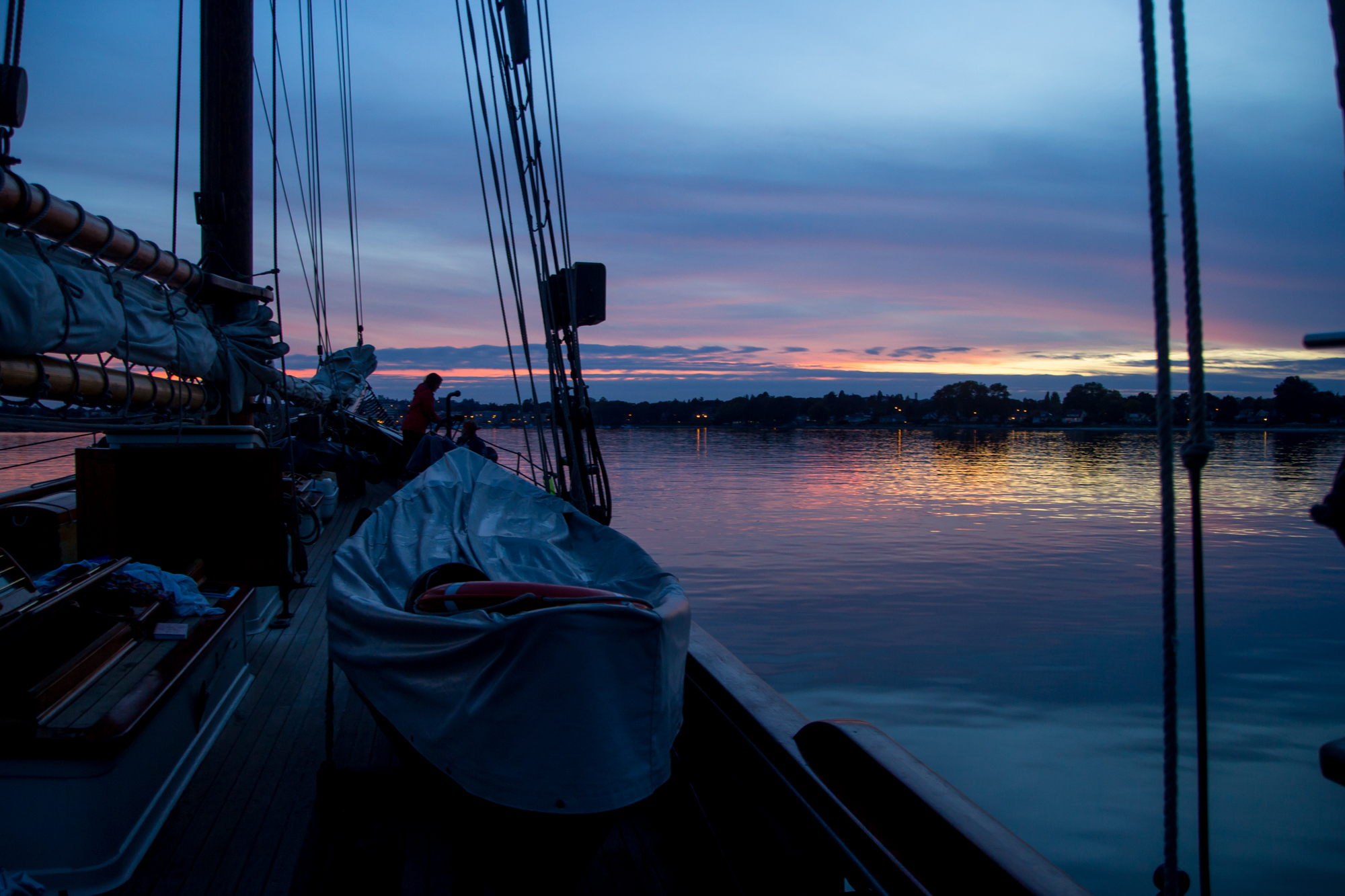
You won't want to miss it, it is a packed full guide of my favourite computer tools, apps and plugins. Join the Leftcoast Collective and I will send it straight to you. I will also send free great content directly to you every Thursday, big things are coming that you don't want to miss. [yks-mailchimp-list id="e34efe9754" submit_text="SEND ME THE FREE EBOOK!"]
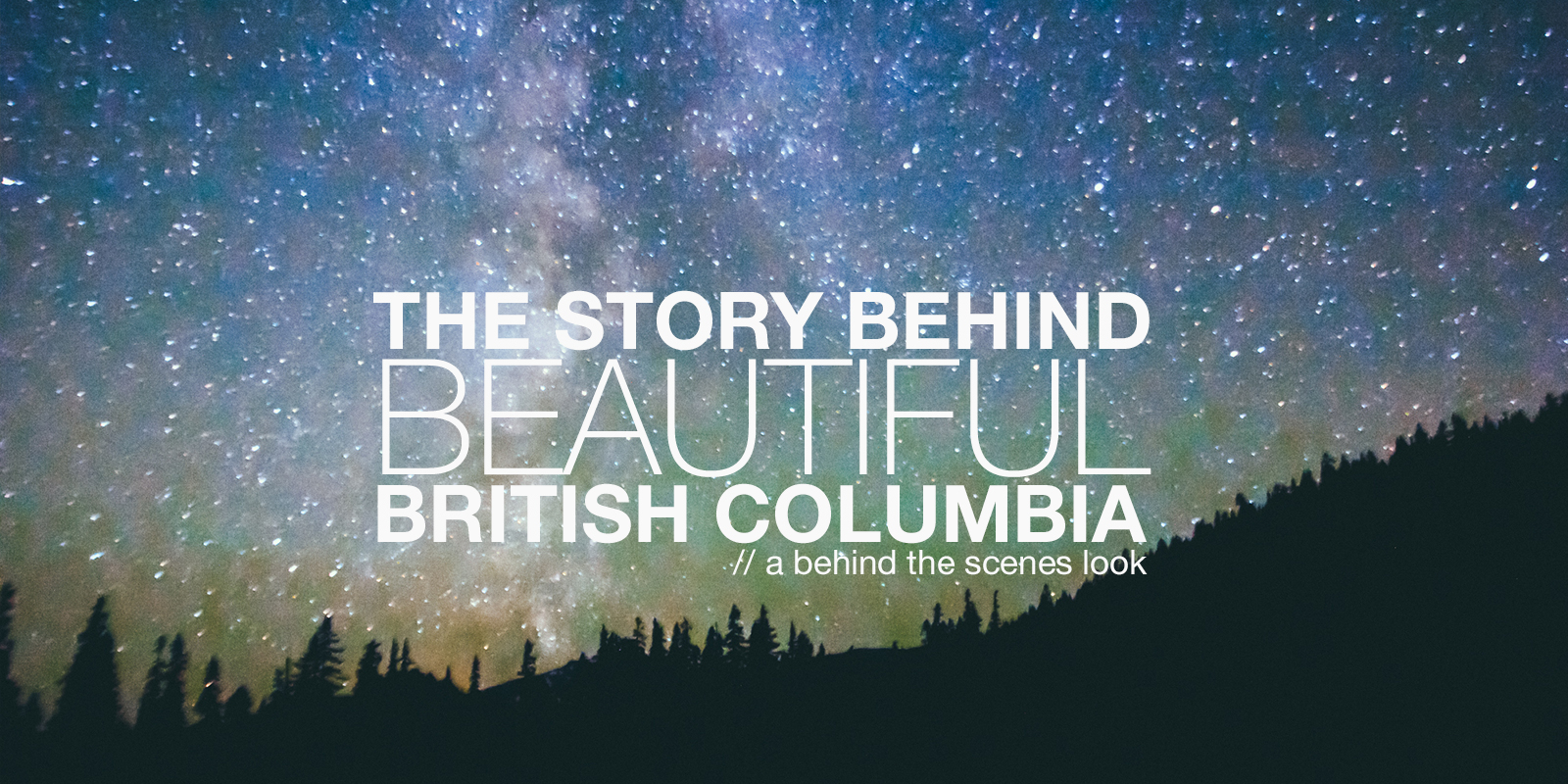

British Columbia is my favourite place on earth. There is something about the amazing combination of beautiful snow capped mountains, unreal coastal landscapes, and acres of lush forest that leave me in awe through every adventure in the BC mountains.
Four years ago I started shooting a project that to this day remains one of my absolute favourites. I want to share about that film today, from beginning to end and everything in between.
This project was monumental for me as a growing filmmaker. I realized that it was okay to be an aspiring storyteller and have some of my best work come later. That was the best realization I have ever had, it gave me the freedom to create from where my skills were at, knowing that my work will continue to improve as I create lots of stuff.
I will never forget starting to take those first few timelapses.
These and more, were all questions I had in my head as I began the adventure of shooting my first timelapses. I had no idea what I was doing, and that was the best part. Complete permission to just have fun and create stuff in response the the place I call my home.
I will never forget that morning after taking my first timelapses of the stars. I picked up my camera from its tripod like a nervous yet excited child, hit the preview button and began to flip through some pictures. Needless to say the level of stoke was incredibly high. I stared at frame after fame of the milky way galaxy slowly climbing over the northern western mountains, I captured it completely on accident, but I completely loved it. I had taped a rock to the cameras trigger as a make shift intravelometer and had just pointed it in a direction and hoped for the best.
My setup for shooting this film was pretty simple. I had a sketch tripod and I was off to the races.
• Modified Flycam Nano ( I extended the middle column so it could hold more weight • Canon t2i (still an excellent very useable camera) • Rokinon 35mm f1.4 lens (one of my favourite lenses) • Borrowed sigma 10–20mm (I wouldn't recommend purchasing this, I've upgraded to the tokina 11-16) • Manfrotto Monopod (MVM500A) (absolute favourite tool for run and gun shooting)
I experimented a lot on this piece and I wanted to try create something that was visually pleasing and inspiring. The mono pod proved to be one of my greatest assets. I used it constantly on this film. I would step on it with one foot and slowly move the camera forward. This was great for getting simulated slider shots, throw a little warp stabilizer on, and you are good to go.
Manfrotto MVM500A Aluminum Fluid Monopod with 500 Head (Black)
This is probably the most fundamental challenge I ran into with this project. Where is the story? I got into filmmaking because I loved those films that really tug at your heart, those films that show you a different way to look at life. I didn’t feel like what I was creating was doing either of those things. It felt like I was just putting together a really beautiful slide show, it felt like it was missing something huge.
I knew this piece wouldn’t be raved about and shared widely
Thats because it was, and still is missing something huge. Regardless I went forward with finishing the project even without a story. I was not going to be able to invent a story for it afterwards, I had missed it while making it. I toyed with the idea of doing a voice over with some inspirational monologue, but I quickly tossed out that idea. I wanted to get it out there and to the world, but I learned a valuable lesson of story and filmmaking with this project. I knew this piece wouldn’t be raved about and shared widely because it lacked that simple but powerful component of what makes something worth watching, the story.
During post production I learned so much. This was definitely one of the most extensive productions I had done so far and every stage of the post had complications. Though with the help of google, and lots of trial and error I managed to pull the film together. I spent over 100 hours editing this project in total and took more than 100,000 stills.
I edited this film on my mid 2012 Mac Book Pro, it only has 8gb of memory, but the i7 intel chip handles things fairly well and is still my main editing machine.
For the first months of editing I really struggled with getting the look I desired from my timelapses. After some research I discovered the countless timelapse artists were using a tool created to work alongside Lightroom called LRTimelapse. This was a breakthrough for me. Sure, I had to learn a new workflow and piece of software, but this tool really unlocked some editing potential that I really needed to bring my timelapses to life. It had the tools to get rid of the flicker that I so desperately hated.
I learned that from now on I wanted to shoot all my timelapse sequences in RAW format. I shot most of the timelapses in this film with jpeg sequences and that really caused my post production to suffer. I couldn’t rescue the shadows as much and white balance was a real challenge at times.
I spent most of my first months shooting running around the rocks with my modified Flycam Nano, exploring through the forests and waiting patiently as my next timelapse was captured. In one tidal wave of passion, I was hooked on nature timelapsing. I continued to shoot different landscapes across the next year and a half, and eventually came to the process of actually editing these things all together into a film that I could share with others.
How do i get better?
In order to grow your timelapsing skills you need to put in the hours. I still see so often that people are wanting their skills to improve at an impractical rate. With this project I spent hundreds of hours running around in the forest with my camera trying to get good glidcam shots. I took over 100,000 stills worth of timelapses learning on how to take them better. I spent countless hours researching how to properly edit timelapses and put together a film. If there are skills you want to improve you are going to have to start deliberately practicing them like you actually mean it.
There was quite the learning curve to figure out how to get these sequences of pictures to look exactly the way I wanted them too. My first cut of the film was actually over 10 minutes! I had to learn to cut things back as much as I could so that I was communicating more with less.
[mks_pullquote align="right" width="200" size="15" bg_color="#359848" txt_color="#ffffff"]The motivation behind your films is so important.[/mks_pullquote] My biggest take away from this entire project comes back to story. Story story story. The motivation behind your films is so important. I really wish I had put some effort forward in crafting a narrative that could have taken this film to a whole other level. As it stands it really is just an extensive show real, a nice slide show of sorts, but with a powerful story it really could have had a lot more impact.
Send me an email through my contact form, I would love to hear from you.
You won't want to miss it, it is a packed full guide of my favourite computer tools, apps and plugins. Join the Leftcoast Collective and I will send it straight to you. I will also send free great content directly to you every Thursday, big things are coming that you don't want to miss. [yks-mailchimp-list id="e34efe9754" submit_text="SEND ME THE FREE EBOOK!"]